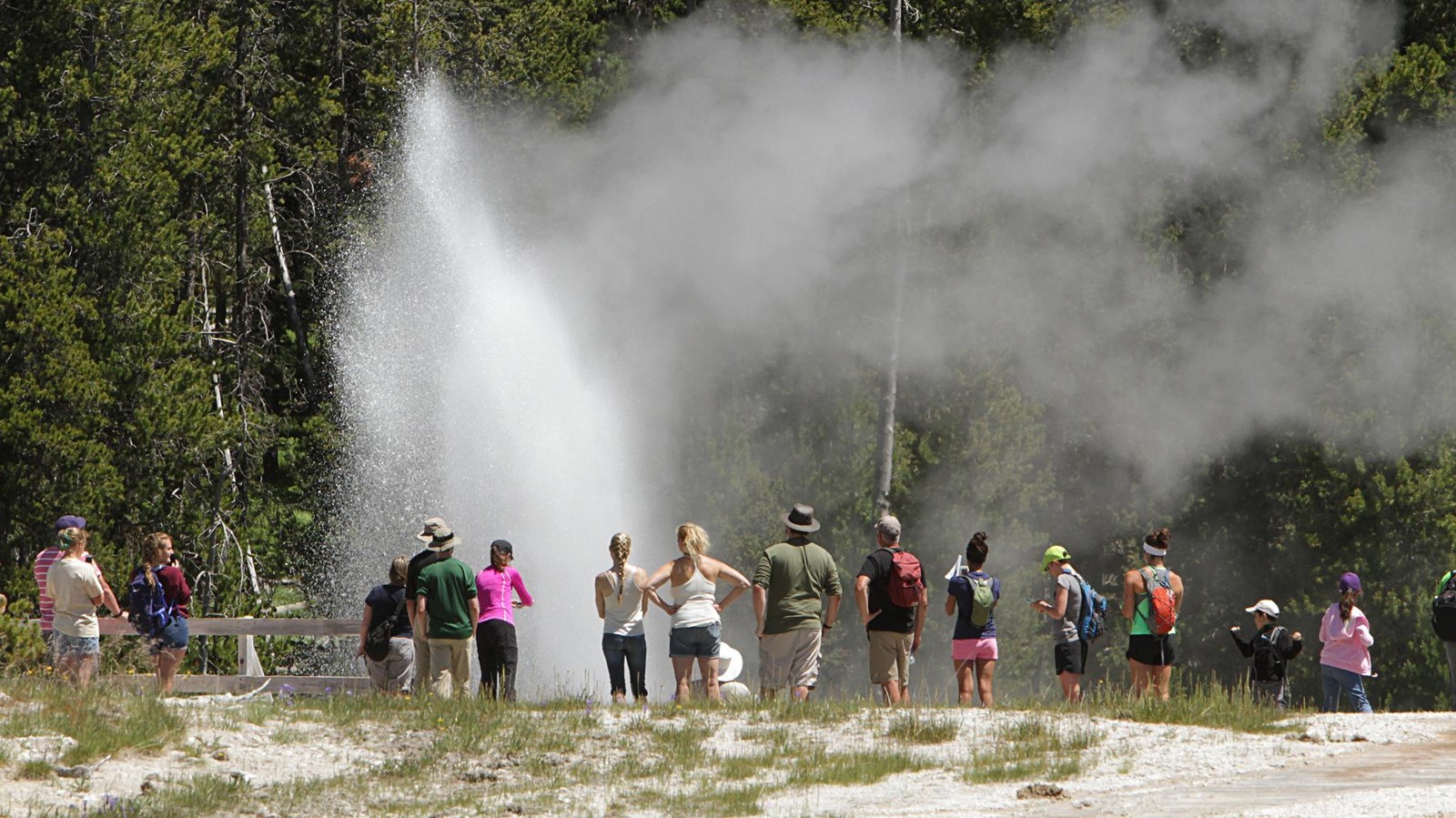Last updated: February 29, 2024
Place
Aurum Geyser

NPS / Jim Peaco
Historical/Interpretive Information/Exhibits
Aurum Geyser is constantly boiling in its main vent, a small pool surrounded by raised sinter deposits almost forming a cone structure. The surrounding area is covered in hard sinter and a few other smaller steaming vents. Before an earthquake in 1983, Aurum was actively boiling but eruptions were rare. Now, eruptions are irregular, ranging from 22 hours to over 2 weeks. Erupts 20 feet (6 m) for 70 seconds.
Aurum Geyser has an average temperate of 199.4°F (93°C), an average pH of 8.6, and an average conductivity of 1761 uS/cm.
Geysers
Geysers have constrictions in their plumbing systems that prevent water from moving freely to the surface where heat would escape. Water beneath the constrictions creates a buildup of steam. Eventually the steam pushes water past the constrictions and the geyser erupts.
Upper Geyser Basin
The majority of world’s active geysers are in the Upper Geyser Basin, including Old Faithful. Only four other places in the world have large concentrations of hydrothermal features: Russia (Kamchatka), Chile, New Zealand, and Iceland.
The heat for the hydrothermal features comes from Yellowstone’s volcano. Molten rock or magma may be as close as 3-8 miles (5-13 km) underground. Rain and snow supply water that seeps down several thousand feet (more than a kilometer) below the surface where it is heated.
Underground cracks form a natural plumbing system. Hot water rises through the plumbing to produce hot springs and geysers.
Use Caution in Hydrothermal Areas
- Stay on boardwalks and designated trails.
- Hydrothermal water can severely burn you.
- Never run, push, or shove.
- Supervise children at all times.
- Do not scratch hydrothermal mats.
You are responsible for your safety.
Think safety, act safely. Yellowstone is a dangerous place.
